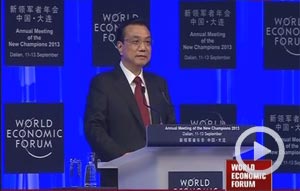News in review Friday, September 6 to Thursday, September 12
Updated: 2013-09-13 11:44
(China Daily)
|
||||||||
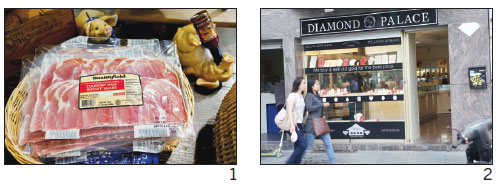

Friday - September 6
Renminbi moves into top-10 currency rank
The Chinese renminbi has become one of the top 10 most-traded currencies and its ascendancy has been due to growth in offshore trading, according to a survey by the Bank for International Settlements.
The renminbi was the 9th most-actively traded currency this year, jumping from 17th in 2010 and 20th in 2007. The currency accounted for a 2.2 percent share of global foreign-exchange volume, according to the report.
It placed just above the New Zealand dollar and the renminbi's entrance into the top 10 pushed the Hong Kong dollar and Swedish krona to spots 13 and 11, respectively. The US dollar continues to be the dominant global currency, accounting for 87 percent of global-trading volume, increasing 2 percentage points since 2010. The US dollar is followed by the euro at 33.4 percent and the yen at 23 percent of global-trading volume.
China, Russia sign agreement for natural gas
China National Petroleum Corp and Russia's Gazprom signed an agreement to export gas to China through the eastern pipeline.
The agreement was signed in the Russian city of St. Petersburg. Chinese President Xi Jinping, who was there to attend the Group of 20 meeting, witnessed the signing ceremony with his Russian counterpart, Vladimir Putin, after meeting together.
China and Russia have negotiated gas supplies for more than a decade, with the price being the focus in recent years. Under a memorandum of understanding the two countries signed in March, Russia will supply 38 billion cubic meters of gas to China annually from 2018. The volume is expected to increase to 60 billion cubic meters in following years. Gazprom said in March that the price discussions are expected to be finished before the end of the year.
Monday - September 9
Smithfield shareholders to vote on acquisition
Now that a US security panel has signed off on a plan by Shuanghui International Holdings Ltd to buy US pork giant Smithfield Foods Inc, shareholders of Smithfield will vote on Sept 24 to approve the acquisition.
In a news release Friday, Shuanghui and Smithfield announced approval by the Committee on Foreign Investment in the United States, or CFIUS, for the proposed takeover - the largest by a Chinese firm of a US company. Shuanghui and Smithfield said they expect the $4.7 billion purchase, which also includes $2.38 billion in assumed debt, to close soon after the shareholders vote..
Both companies - the largest pork producers in their respective countries - argued that the acquisition would not compromise US food safety standards. The goal, they said, would be to export more Smithfield pork to China, not to import Chinese pork into the US. (Photo 1)
Exports give signal of economic recovery
China's exports in August jumped by 7.2 percent from a year earlier, adding to the signs of a gradual recovery, experts said.
Exports were $190.73 billion, compared with 5.1 percent growth in July, the General Administration of Customs said. But imports increased by only 7 percent year-on-year to $162.12 billion, down from the 10.9 percent increase in July, leaving China with a $28.61 billion trade surplus.
Overall foreign trade grew 7.1 percent year-on-year in August to $352.85 billion, compared with the 7.8 percent increase in July.
Tuesday - September 10
China is now the world's 3rd-largest investor
China has become the world's third-largest investor with foreign direct investment setting a record, according to a government report.
China's outbound FDI rose 17.6 percent year-on-year in 2012 to a record high of $87.8 billion, according to the 2012 Statistical Bulletin of China's Outward Foreign Direct Investment, which was released on Monday by the Ministry of Commerce, the National Bureau of Statistics and the State Administration of Foreign Exchange.
China's increase made the nation the world's third-largest investor last year after the United States and Japan, for the first time since the country began to release the data a decade ago.
China was the world's sixth-largest investor in 2011, with an outward FDI flow of $74.65 billion, according to last year's report.
Huo Jianguo, president of the Chinese Academy of International Trade and Economic Cooperation, a think tank of the ministry, said that the surge in outward FDI was mainly driven by domestic enterprises eager to tap overseas markets and profit from using global resources.
"Debt crises and slowing growth in developed economies opened up great opportunities for Chinese enterprises to invest abroad, and the renminbi's appreciation helped the process," Huo said.
Report: China loses or wastes nearly 20% of grains
Nearly one-fifth of rice, wheat and other grain in China is lost or wasted "from farm to fork", with consumers accounting for the largest portion of waste, according to a report.
While China is burdened with 21 percent of the world's population to feed, the country contains only 6 percent of the world's total water resources and about 9 percent of its arable land, according to the report, "Food Losses and Waste in China and Their Implication for Water and Land," published in the American Chemical Society's journal, Environmental Science & Technology.
Of the 19 percent total grains lost in harvest, storage, transport, processing, rotting because of bad storage or wasted, researchers found consumer waste accounted for 7 percent.
Apart from grains, the researchers estimated that about 20 percent to 30 percent of fruits and vegetables, 5 percent to 15 percent of eggs and 3 percent to 15 percent of meat are also wasted in China, according to the report issued last month.
It was compiled by a team of experts including Junguo Liu of the College of Nature Conservation at Beijing Forestry University, and Jan Lundqvist, Josh Weinberg and Josephine Gustafsson of the Stockholm International Water Institute in Sweden.
|
The colors of the iPhone 5C, which is aimed at emerging markets. Stephen Lam / Reuters |
Wednesday
- September 11New data point to second-half growth
Industrial output, fixed-asset investment and domestic consumption all improved in August, pointing to second-half growth for China's economy, analysts said.
On Tuesday, the National Bureau of Statistics reported the fastest growth for industrial output in 17 months in August. Production grew 10.4 percent year-on-year compared with 9.7 percent in July and 8.9 percent in June, mainly on the contribution by the manufacturing sector.
During the first eight months, fixed-asset investment accelerated to a 20.3 percent gain year-on-year compared with 20.1 percent from January to July.
In August, retail sales rose 13.4 percent year-on-year, up from 13.2 percent in July, reaching the highest level since March, the NBS said.
Survey: Apple's new iPhone still too expensive
Apple launched its long-awaited new iPhone 5S and iPhone 5C, believed to be a major move by the company to regain its momentum in emerging markets such as China, Apple's second-largest market. But almost 90 percent of Chinese users in an online survey complained that the iPhone 5C is still too expensive and said they have no interest in the new gadget.
For the first time, China becomes one of the first markets to have the new iPhones. The starting price for iPhone 5S is 5,288 yuan ($858), while the starting price for the low-end iPhone 5C is 4,488 yuan ($728).
In a survey on Sina.com.cn, the No 1 Web portal in China, 88.4 percent or 8,768 people said the price is too high and only 2.6 percent or 254 people said they would buy iPhone 5C.
Thursday - September 12
China turns to US sorghum for animal feed
While China has traditionally used sorghum to produce liquor, such as the potent baijiu rice wine, now it's using the grain to help formulate animal feed.
China's large private feed mills are increasingly buying sorghum from the United States after using up their import allocations for corn, the preferred animal-feed grain, according to a Reuters report. The US is the world's largest producer of sorghum.
Importing US-grown sorghum is an appealing alternative because domestic corn production is significantly more expensive, according to Reuters.
Multinationals have low trust rate abroad
China's multinational corporations have an 83 percent trust rate in the domestic market, but only a 50 percent trust rate among respondents in other emerging markets and the figure was just 24 percent for developed markets, according to an international survey.
The global public relations firm Edelman interviewed 5,400 "informed online respondents" in nine developed and emerging countries. It attributed the trust deficiency mainly to low brand familiarity and sensitivities about state involvement.
The survey also found that in developed markets respondents think that Chinese companies have failed to produce high-quality products and act responsibly in a crisis.
But a few Chinese corporations stand out. Lenovo Group Ltd earned a 72 percent consumer awareness level in the US and Air China Ltd enjoyed a 63 percent rating. These levels were much higher than corporations in other emerging markets. (Photo 4)
|
A replica rubber duck wears a green vest and is accompanied by six inflated "duck eggs" at Yuyuantan Park, Beijing, on Sept 6, the day before the real one - the inflated Rubber Duck by Dutch conceptual artist Florentijn Hofman - was floated on a lake at the 9th China International Garden Expo in Beijing. The cost to see the knockoff is 2 yuan (33 cents) and 100 yuan ($6.21) to see the real one. CFP |
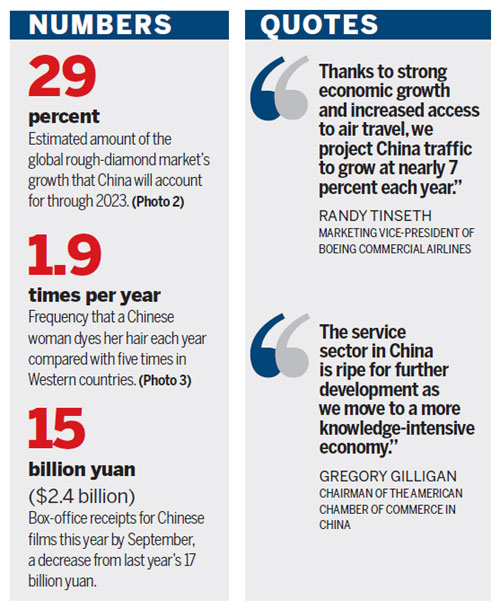
(China Daily USA 09/13/2013 page8)
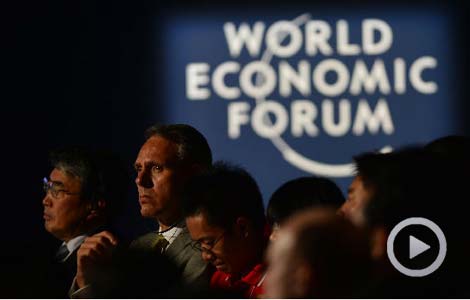
 Experts discuss Chinese premier's economic plan
Experts discuss Chinese premier's economic plan
 Voyager 1 has left solar system: NASA
Voyager 1 has left solar system: NASA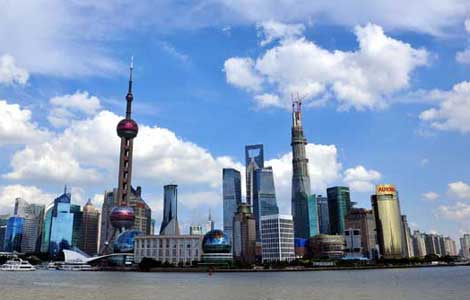
 Time of opportunities, challenges
Time of opportunities, challenges
 Plenty of fizz
Plenty of fizz
 Traffic about-face seeks to ease congestion
Traffic about-face seeks to ease congestion
 Another iPhone4 explodes while charging
Another iPhone4 explodes while charging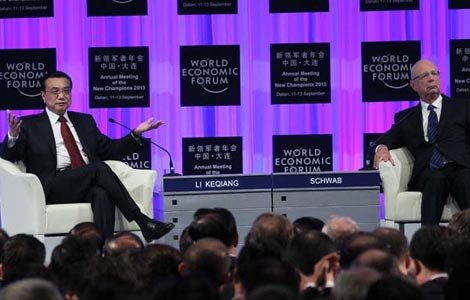
 Premier stresses transformation of the economy
Premier stresses transformation of the economy
 Soyuz capsule returns from space station
Soyuz capsule returns from space station
Most Viewed
Editor's Picks

|

|

|

|

|

|
Today's Top News
WB head to discuss climate in China visit
US moves against China firms criticized
3 sentenced to death for Xinjiang terror attack
Xi welcomes talks on Iran
Assad agrees to hand over chemical weapons
Time of opportunities, challenges
China sets caps for rare earths exploration
Ending non-tariff barriers benefits global economy
US Weekly

|

|


